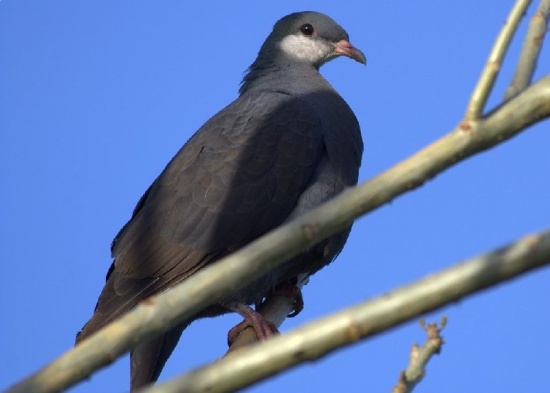| Line 18: | Line 18: | ||
{{GSearch|Columba+vitiensis}} | {{GSearch|Columba+vitiensis}} | ||
*[http://www.aviceda.org/abid/birdimages.php?action=birdspecies&fid=29&bid=304 View more images of this species on the ABID] | *[http://www.aviceda.org/abid/birdimages.php?action=birdspecies&fid=29&bid=304 View more images of this species on the ABID] | ||
| + | *[http://www.orientalbirdimages.org/birdimages.php?action=birdspecies&Bird_ID=705&Bird_Image_ID=10454&Bird_Family_ID=91 View more images of this species on Orientalbirdimages] | ||
[[Category:Birds]] | [[Category:Birds]] | ||
Revision as of 09:35, 15 September 2007
- Columba vitiensis
aka White-throated Pigeon
Identification
Photo taken: Pacific Harbour, Fiji
The adult has an iridescent purple and green crown, black wing and uppertail coverts, yellowish red iris, yellow bill, red orbital skin, white or grey chin and ear coverts, and purplish feet. It has a dull chestnut or glossed purple green below, depends on subspecies. The nominate form C. v. vitiensis from Fiji has a dull underparts, while subspecies C. v. halmaheira of Maluku Islands has the most iridescent plumage. Both sexes are similar. The young is duller than adult.
Distribution
The Metallic Pigeon is distributed to tropical forests of eastern Indonesia, the Philippines, New Guinea, Solomon Islands, Fiji, New Caledonia, Samoa and surrounding southwest Pacific islands. It used to exist on Lord Howe Island in Australia, but was exterminated by hunting in 1853.
Taxonomy
Habitat
Behaviour
The diet consists mainly of various fruits, grains, seeds and berries. The female usually lays one to two eggs.




